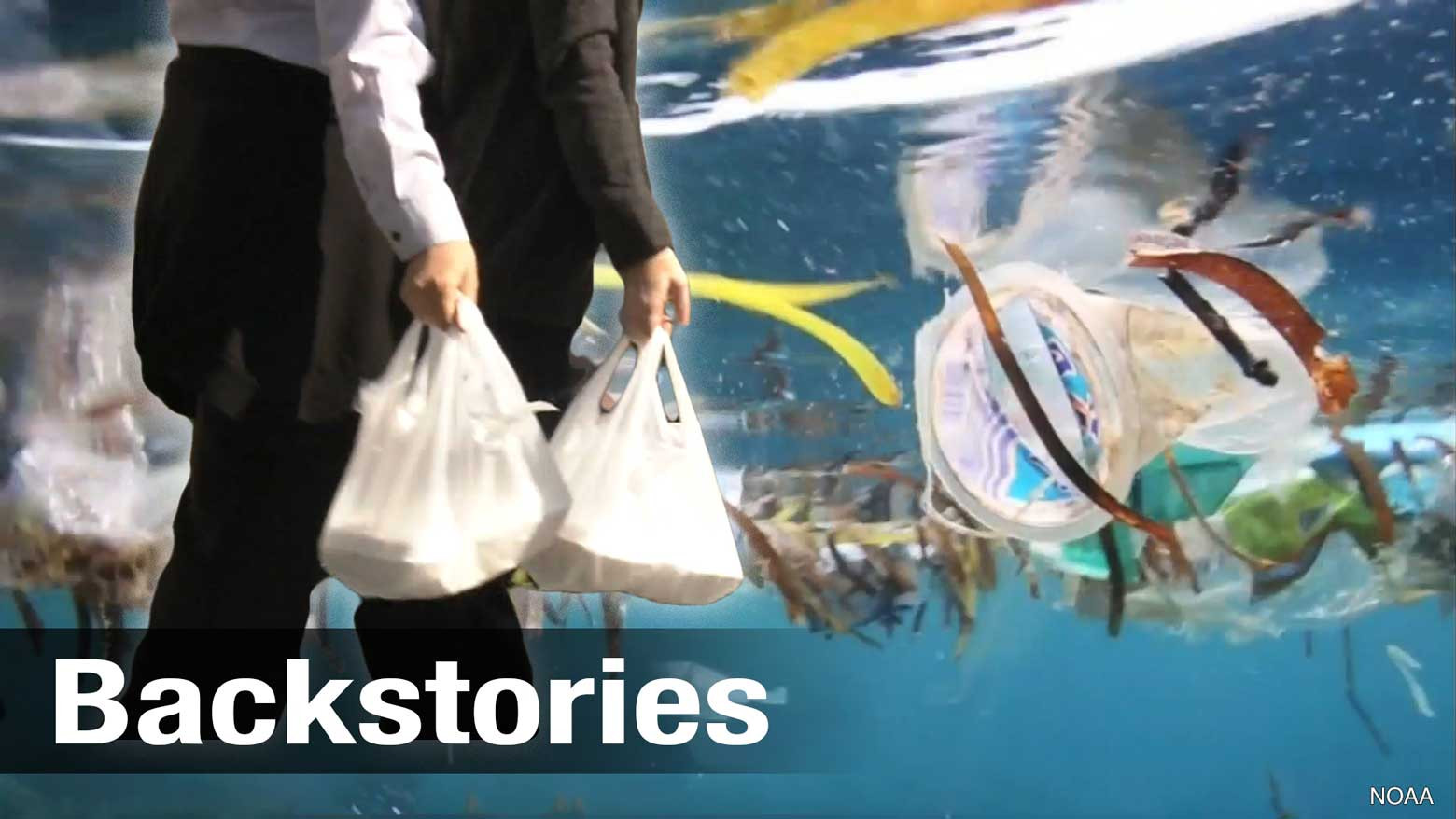Convenience store chain Lawson has nearly 14,000 outlets across Japan. Every single one of these stores now charges 3 yen—about 3 US cents—per plastic bag. The company will also offer eco-friendly reusable bags in exchange for loyalty points.
"If this reduces plastic waste, then it's good," says a woman in her 50s. "I used to throw all of my plastic bags out, except for the ones I used as garbage bags. So I was definitely creating a lot of waste."
But others are not pleased with the change.
"I think it's a little inconvenient to have to bring your own bag to the convenience store," says one man.
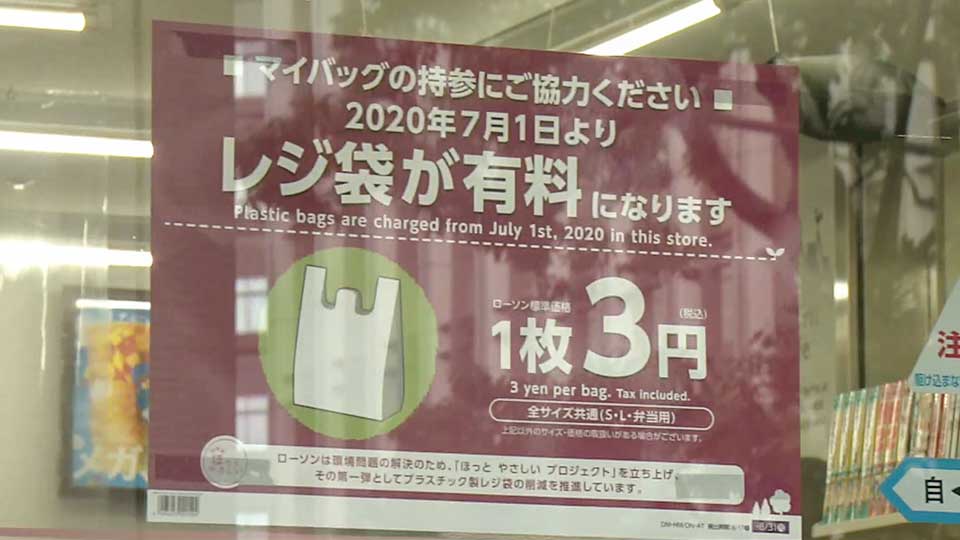
All retailers are required to implement the surcharge, but they can offer bags for free if the material is at least 25% plant-based biomass.
Beef bowl chain Yoshinoya is taking this option. It now puts takeout orders into a new type of bag that is made 25% from plant-based materials. The company says this will cut its use of petroleum-derived plastics by 34 tons a year.
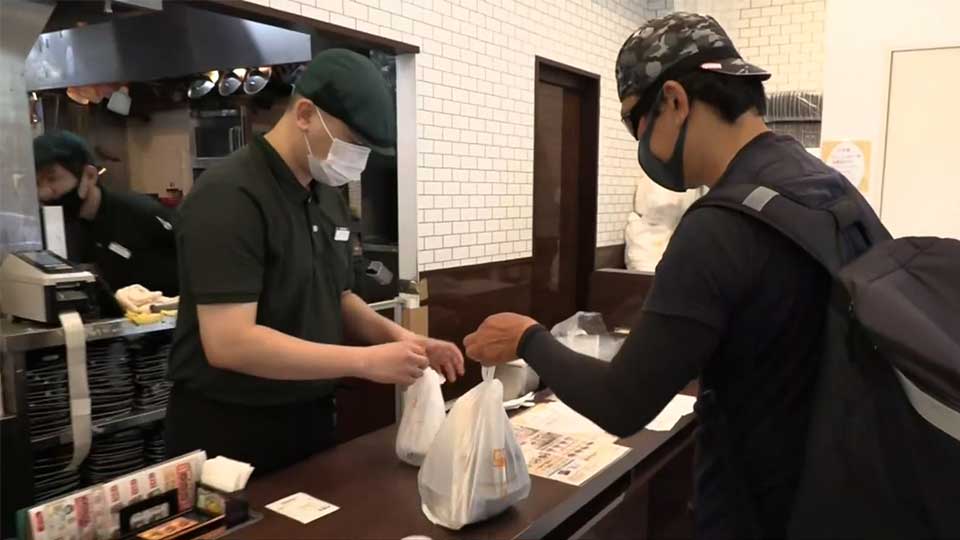
Yoshinoya says the bags are a safe and clean option for takeout meals, and using them as a matter of course is faster than asking every customer their preference, especially as more people are ordering takeout amid the coronavirus pandemic.
"We considered the safety and hygiene of our customers," says spokesperson Terasawa Yuji. "We want our customers to feel safe as they eat, and that's why we're putting their orders into bags."
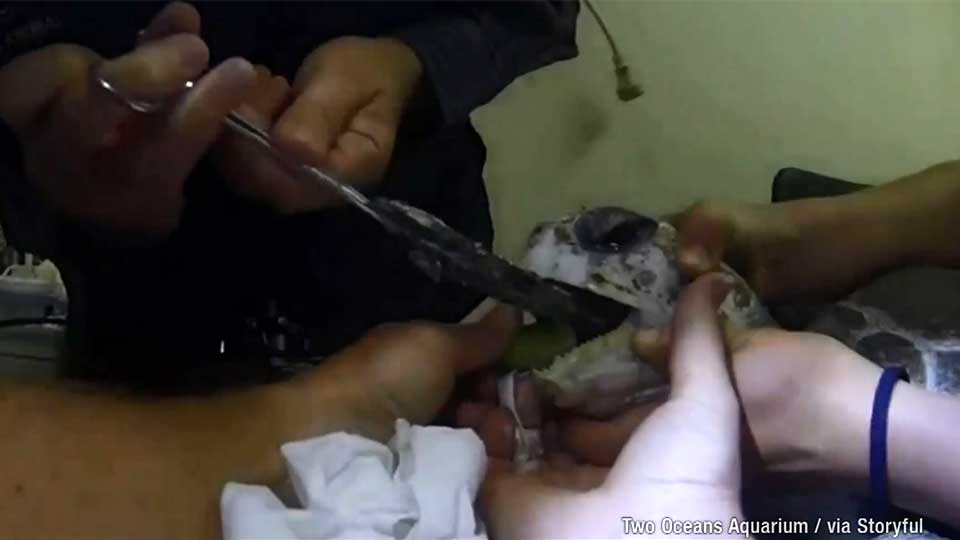
The World Economic Forum says there will be more plastic in the ocean than fish by 2050. And the Japanese government's own figures suggest the country needs more than just the new surcharge to make a meaningful dent in the problem. The Environment Ministry says single-use bags make up only about 3% of Japan's plastic waste.
Some companies have taken matters into their own hands. Last year, Lawson began serving its small-sized ice coffees in paper cups rather than plastic.
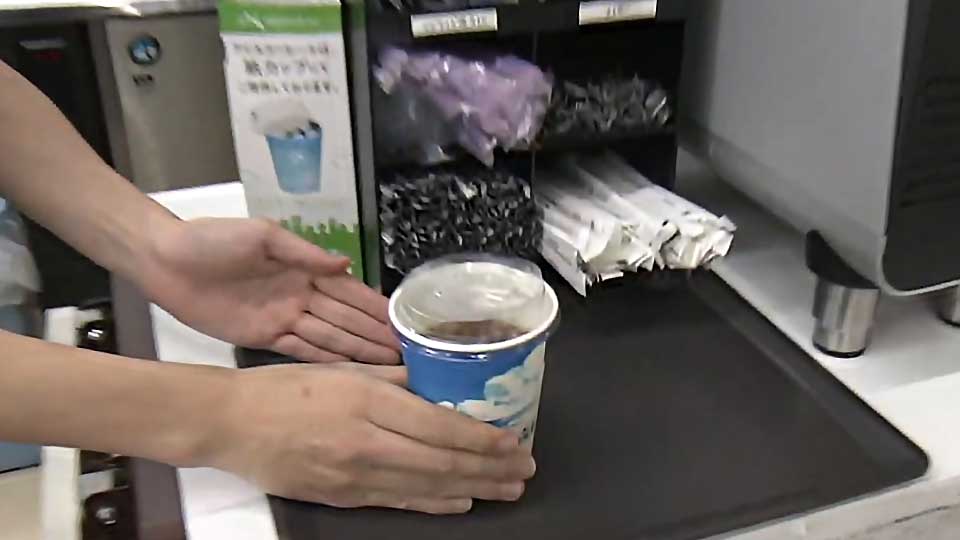
And the company has switched its popular Lawson brand yogurt drink products into paper containers. Lawson says it aims to reduce its plastic container use in 2030 by 30% compared to 2017 levels.
"Plastic doesn't decompose easily and harms the environment," says Sugiki Soya, a Lawson spokesperson. "We want to improve the global situation and are taking on challenges, even if they are small."
Japan's plastic bag surcharge is a step in the right direction, but real change will depend on the commitment of individuals and companies to break their plastic habits.
